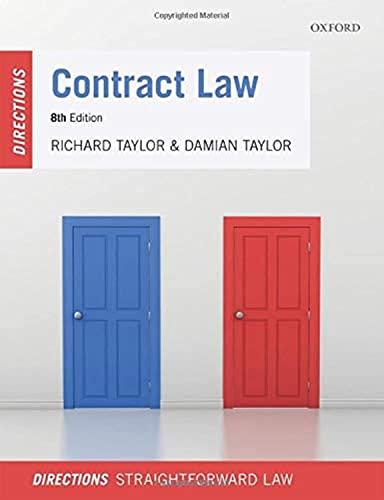Question
Western Maryland Company (Western) was a timbering and mining concern. A substantial portion of its stock was owned by CSX Minerals (CSX), its parent corporation.
Western Maryland Company (Western) was a timbering and mining concern. A substantial portion of its stock was owned by CSX Minerals (CSX), its parent corporation. The remaining shares were owned by several minority shareholders, including Sanford E. Lockspeiser. Western's stock was not publicly traded. The board of directors of Western voted to merge the company with CSX. Western distributed to the minority shareholders a proxy statement that stated that CSX would vote for the merger and recommended approval of the merger by the other shareholders. The proxy materials disclosed Western's natural resource holdings in terms of acreage of minerals and timber. It also stated real property values as carried on the company's books - that is, a book value of $17.04 per share.
It included an opinion of the First Boston Corporation, an investment banking firm, that the merger was fair to shareholders; First Boston did not undertake an independent evaluation of Western's physical assets. Lockspeiser sued, alleging that the proxy materials were misleading because they did not state tonnage of Western's coal reserves, timber holdings in board feet, and actual value of Western's assets. Has Lockspeiser stated a claim for relief? If so, what is the claim?
Step by Step Solution
There are 3 Steps involved in it
Step: 1

Get Instant Access to Expert-Tailored Solutions
See step-by-step solutions with expert insights and AI powered tools for academic success
Step: 2

Step: 3

Ace Your Homework with AI
Get the answers you need in no time with our AI-driven, step-by-step assistance
Get Started


